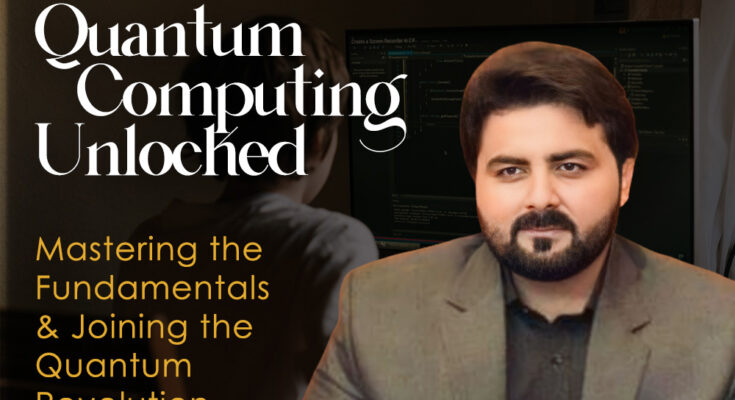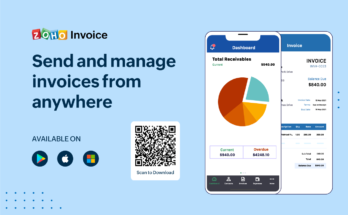Master the fundamentals of quantum Revolution. At present, the world is becoming more and more digital, and the demand for more advanced computing power is increasing. Quantum computing is the solution to these increasing computing demands.
Qubits or quantum bits are the basic units of quantum computing that are capable of handling complex tasks more efficiently than classical bits. In this article, we will discuss the importance of qubits in quantum computing and how it can impact our future. We should learn Master the fundamentals of quantum computing.
What are Qubits?
Qubits are the basic unit of quantum computing, which can be either in the state of 0, 1, or a combination of both. Unlike classical bits, which can only have two states of either 0 or 1, qubits can be in a superposition of both 0 and 1.
This allows quantum computers to perform calculations at a faster rate than classical computers. In addition, qubits can also be entangled with other qubits, which means that the state of one qubit can affect the state of another qubit.
Importance of Qubits in Quantum Computing
The unique properties of qubits allow quantum computers to solve complex problems at a much faster rate than classical computers. Quantum computers are capable of performing calculations exponentially faster than classical computers.
This makes quantum computing ideal for solving complex problems that are currently impossible to solve using classical computers. For example, quantum computers can help in finding the optimal solution to complex mathematical problems or simulate complex chemical reactions, which can help in the development of new drugs. we should master the fundamentals of quantum Revolution.
Applications of Quantum Computing
Quantum computing has a wide range of applications that can impact various industries. For example, in finance, quantum computing can help in optimizing investment portfolios, and in cybersecurity, it can help in developing more secure encryption methods.
Quantum computing can also help in developing more accurate weather forecasting models, which can help in mitigating the impact of natural disasters. In addition, quantum computing can help in the development of advanced artificial intelligence systems that can solve complex problems.
Challenges in Developing Quantum Computing
While the potential applications of quantum computing are vast, there are also several challenges that need to be addressed in developing quantum computing. One of the biggest challenges is the development of qubits that can maintain their quantum state for a longer time. Another challenge is the scalability of quantum computers. Currently, quantum computers are limited in terms of the number of qubits they can handle. Master the fundamentals of quantum Revolution and beat the challenges.
Statistics:
- According to a report by Market Research Future, the global quantum computing market is expected to grow at a CAGR of 34% between 2020 and 2025.
- In 2020, Google claimed to have achieved quantum supremacy with its Sycamore processor, which used 53 qubits to perform a specific calculation faster than the fastest supercomputer in the world.
- IBM has developed a quantum computer with 65 qubits, called the IBM Quantum System One.
- According to a survey by Deloitte, 53% of executives in large companies expect quantum computing to have a significant impact on their businesses within the next five years.
- The number of qubits needed to break commonly used encryption methods is estimated to be around 1,000 or more, according to a report by the National Institute of Standards and Technology (NIST).
Quantum Computing Vs Artificial Intelligence (AI)
Quantum computing and artificial intelligence (AI) are two different but complementary fields of study that are poised to transform the future of computing.
While quantum computing is focused on solving complex problems that are currently impossible to solve using classical computers, AI is focused on developing intelligent systems that can learn from and make decisions based on data.
Quantum computing can provide a significant boost to the development of AI by enabling faster and more efficient processing of large amounts of data. For example, quantum computers can be used to train deep learning models faster or perform more accurate natural language processing.
On the other hand, AI can also help in the development of quantum computing by enabling better control of qubits and improving the error correction mechanisms.
The intersection of quantum computing and AI has the potential to revolutionize various industries, including finance, healthcare, and transportation, by enabling the development of more advanced and intelligent systems.
Conclusion
Quantum computing is the future of computing, and qubits are the basic unit that makes quantum computing possible. The unique properties of qubits allow quantum computers to solve complex problems that are currently impossible to solve using classical computers. As the demand for more advanced computing power increases, the importance of qubits in quantum computing will only continue to grow. While there are several challenges in developing quantum computing, the potential benefits of quantum computing are vast and can impact various industries.
How to Learn ?
Master the fundamentals of quantum Revolution.
It can be a challenging but rewarding experience, as it involves a deep understanding of quantum mechanics and complex mathematical concepts. Here are some steps you can take to start learning quantum computing:
-
Develop a strong foundation in mathematics:
Quantum computing relies heavily on linear algebra, calculus, and other mathematical concepts. Therefore, it is essential to have a solid understanding of these topics to learn quantum computing effectively.
-
Learn the basics of quantum mechanics:
Quantum mechanics is the foundation of quantum computing. You will need to understand basic concepts such as superposition, entanglement, and measurement to start learning quantum computing.
-
Start with simple quantum algorithms:
Once you have a solid foundation in mathematics and quantum mechanics, you can start learning quantum algorithms. Start with simple algorithms, such as the Deutsch-Jozsa algorithm, and work your way up to more complex algorithms like Shor’s algorithm.
-
Use online resources and tools:
There are many online resources available to learn quantum computing. These include online courses, textbooks, and quantum computing simulators that allow you to practice and experiment with quantum algorithms.
-
Join a quantum computing community:
Joining a community of like-minded individuals can help you stay motivated and learn from others. You can participate in online forums or attend local meetups to connect with others interested in quantum computing.
-
Consider pursuing a degree or certification:
If you are interested in pursuing a career in quantum computing, you may consider pursuing a degree or certification in the field. Many universities now offer quantum computing courses, and there are also online programs available.
Overall, learning quantum computing requires patience, persistence, and a willingness to tackle challenging concepts. With the right resources and mindset, anyone can learn quantum computing and become proficient in this exciting and rapidly growing field.
Sources:
Here are three reputable sources for Master the fundamentals of quantum Revolution:
- IBM Quantum Experience: IBM offers a free online platform called IBM Quantum Experience that allows users to run quantum experiments on real quantum systems and simulators. The platform also provides tutorials and other resources to help users learn more about quantum computing.
- Quantum Computing Report: The Quantum Computing Report is a leading source of news and analysis on quantum computing. It offers a weekly newsletter and a variety of resources, including a directory of quantum computing companies and an events calendar.
- Quantum Computing for the Very Curious: “Quantum Computing for the Very Curious” is a free online textbook written by physicist and computer scientist Michael Nielsen. The book provides a comprehensive introduction to quantum computing, including detailed explanations of quantum mechanics, quantum algorithms, and quantum error correction. It also includes exercises and examples to help readers solidify their understanding of the material.
- Quantum Magazine: Quantum Magazine is a publication that covers the latest developments in quantum computing, quantum physics, and quantum technology. It provides in-depth articles, interviews with leading researchers, and other resources for anyone interested in the field of quantum computing.



